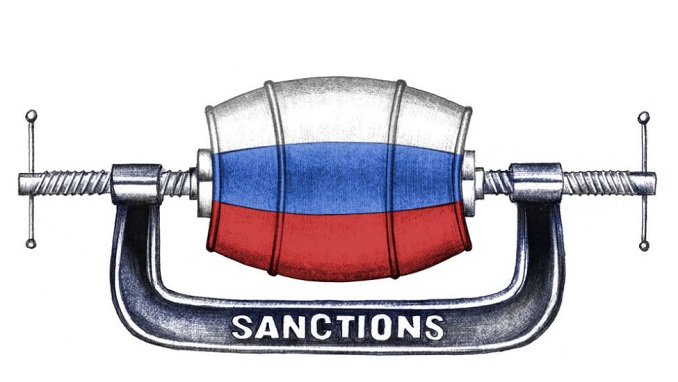The new sanctions against Russia announced by Washington this week did not directly affect operations with state debt, however investors in Russian government debt securities are seriously worried, Nezavisimaya Gazeta writes.
The Russian Finance Ministry had to stop placing new portions of public debt, and at the same time resume buying currency through ruble tax revenues. Experts interviewed by the newspaper believe that the Ministry’s actions will accelerate inflation and lead to a tightening of monetary and credit policy. As a result, the price of loans will rise both for the general public and for businesses.
The new set of restrictions includes a ban on the supply of dual-use products to Russia, exports to Russia of all “sensitive” goods and technologies related to U.S. national security, as well as deliveries of electronics, components and technologies from the oil and gas industry. The package still does not limit activities with the Russian national debt. Nevertheless, another bill has already been submitted to the U.S. Congress, which could restrict dollar transactions for a number of state banks, ban investments in Russian public debt and restrict the export of technologies for the oil and gas industry.
At the same time, even the threat of imposing sanctions that are tougher raises alarm bells among investors. According to the newspaper, demand for Russian securities is rapidly declining.
Thus, according to the Central Bank of Russia, at the end of July the share of non-residents among holders of Russian OFZs was 27.5% against a record 34.5% before the announcement of April’s U.S. sanctions.
“Unlike in April, when foreigners were selling, and our people were buying, now the situation is that everyone is spooked by the threat of sanctions, and everyone has gone into waiting. The demand for OFZs has also dried up,” says Kirill Tremasov , Director of the analytical department at Loko-Invest.
The Finance Ministry’s move to suspend auctions on OFZ placements is a forced measure, experts told Nezavisimaya Gazeta.
“Under conditions of constant sanctions pressure, it is expensive to borrow through OFZs, with the yield of some issues reaching 9%,” says Alexey Antonov, analyst at Alor. Cancelling the auction also hints at inflationary fears and expectations of a further weakening of the ruble, the expert said.












